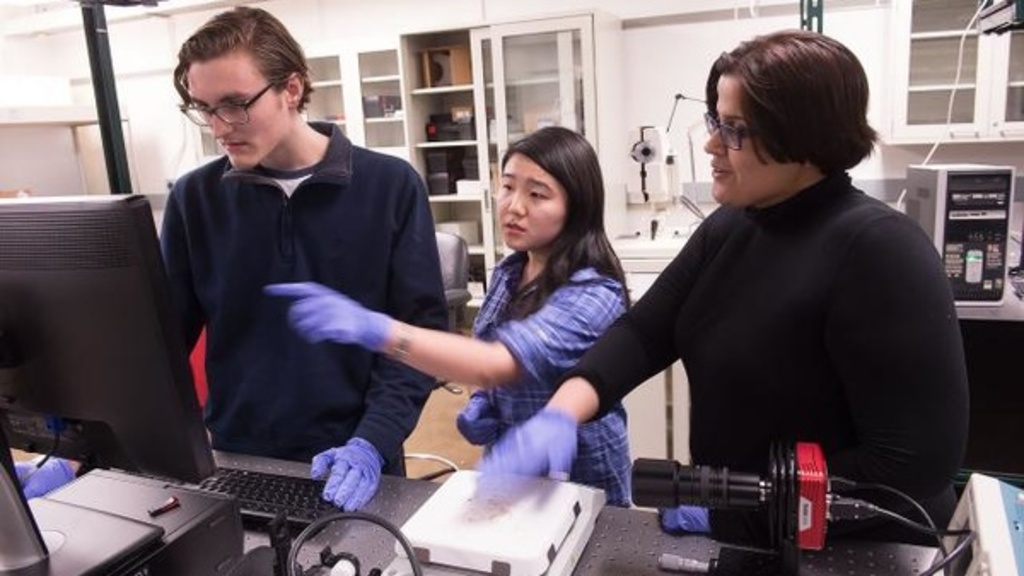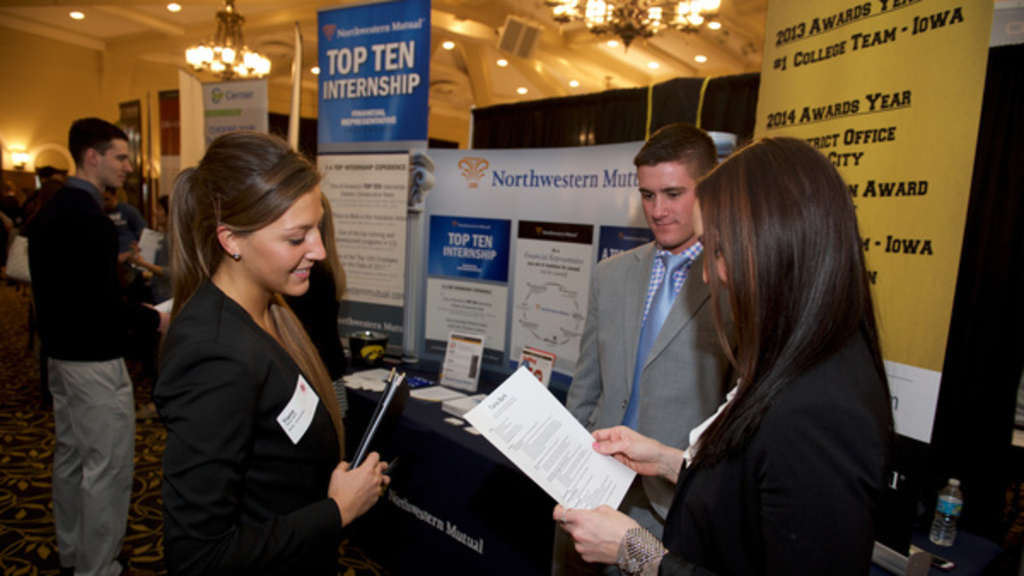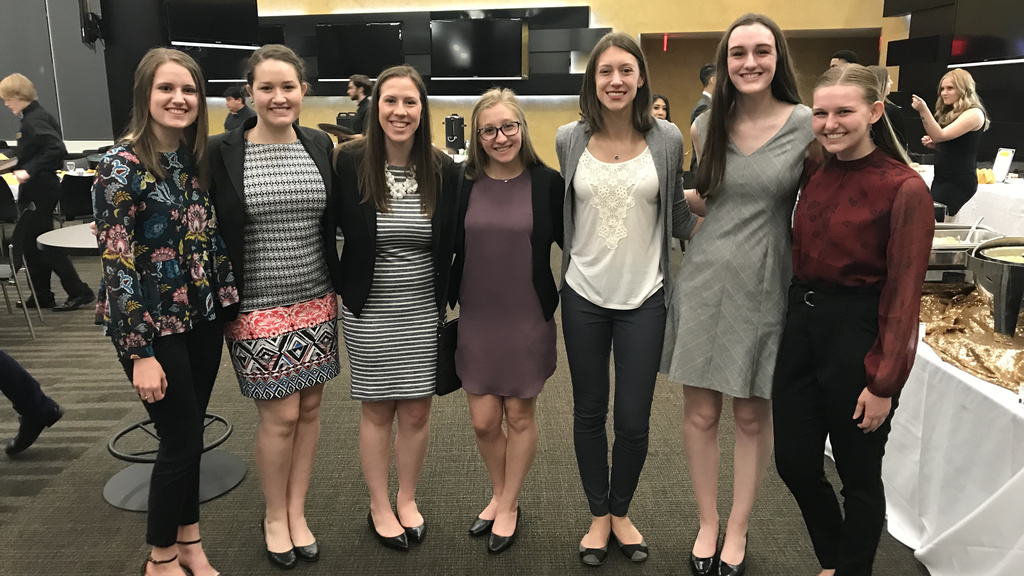We recognize how important faculty and staff are to the success of our students and development of industry partners. There are many ways you can collaborate with Engineering Career Services in these areas:
- Referrals - Encourage students to meet with Career Services staff and peers as well as attend career related workshops, programs, and career fairs. Located in the Student Development Center in 3612 Seamans Center, we can assist students through all stages of the career development process.
- Promote Programming - Market career programming to students during your classes and add the Fall and Spring Engineering Career Fair dates to your syllabus. Refer to the College calendar for events and sign-up to receive weekly emails on our new Career Connect dashboard.
- Class & Seminar Presentations - Invite us to present to your classes and seminars. We are always looking for opportunities to get in front of students.
- Employer Relations - Collaborate on developing relationships with employers interested in providing experiential learning and job opportunities for students.
For more information, contact Justine Hines at engineering-sdc@uiowa.edu.
Handshake
Handshake is the University's on-line recruiting system designed to connect students with employers and opportunities. Students can search for companies and positions, upload their resume to be viewable by employers, apply for on-campus interviews, find student employment opportunities, and MORE! Faculty are encouraged to post research opportunities and other student employment positions on Handshake as well. You can register as a University employer in Handshake at: careers.uiowa.edu/handshake
Seminar Presentations
Let us help you integrate professional development into the classroom!
- Classroom Presentations - Whether you have to miss a class or you have a career-related component in your syllabus, we are happy to provide customized career-related workshops for your class. Topics can include: building transferable skills, resume and cover letter writing, career fair preparation, job/internship search strategies, interview skills development, job offer evaluation and negotiation, and professional etiquette or even a mixture of these topics. Presentations can range from 10-50 minutes depending on your allotted time.
- Industry Guest Speakers - We are happy to work with you to identify recruiters and alumni that regularly come to campus that might be willing to serve as guest speakers to your class. Industry speakers can discuss latest trends in the professional field, share experiences in transitioning into the workplace, and discuss career paths within their company. This is a great way to integrate the real world into the classroom and help our employer partners build name recognition among students.
Outcomes
At the University of Iowa, we strive for student success. Our goal is for engineering graduates to leave the university equipped with the tools, resources, and connections to thrive in their professional careers. We’re proud to share that 93-98% of our graduates, on average, are employed, continuing their education, or not seeking within 7 months of graduation. Check out our comprehensive outcomes data.
Post-Graduation Dashboard
The interactive dashboard created by the Pomerantz Career Center shows the breakdowns of what Iowa engineers do after graduation. The dashboard can be filtered by year, college, and major.
Ethical Guidelines
Be cautious if an employer asks you to refer a few of your top students for a specific position. If you only refer a few students rather than advertising the position to all students in your classes or college who might be interested, you are not supporting a fair recruiting process and you may open yourself up to discrimination claims. Furthermore, if you release student information to an employer without a student's consent, you may be in violation of FERPA. Rather than recommend individual students to an employer, it's safest to notify any students you know who have expressed an interest in a particular type of position and encourage them to apply. At the same time, you should forward the job announcement to our office so that we may broadly publicize the opportunity.
The National Association of Colleges and Employers (NACE) provides detailed information for faculty members on its website.
NACE's guide to ethical standards for guiding the job-search process, Principles for Professional Practice for Career Services & Employment Professionals, outlines "six essential precepts" supporting the goal of "achieving the best match between the individual student and the employing organization":
- All candidates should have equal access to the opportunity for open and free selection of employment opportunities consistent with their personal objectives and optimum use of their talents.
- Both colleges and employers should support informed and responsible decision making by candidates.
- All aspects of the recruiting process should be fair to candidates and employing organizations.
- Career services professionals and faculty involved in recruiting should provide generally comparable services to all employers, regardless of whether the employers contribute services, gifts, or financial support to the college, department, or office, and regardless of the level of such support.
- As required by the Family Educational Rights and Privacy Act (FERPA), any disclosure of student information outside of the educational institution will be with prior consent of the student unless health and/or safety considerations necessitate the dissemination of such information. Both career services professionals and faculty will exercise sound judgment and fairness in maintaining the confidentiality of student information, regardless of the source, including written records, reports, and computer databases.
- Any recruitment activities through student associations or academic departments should be conducted in accordance with the policies of the career services office and accepted ethical, equal employment and legal practices.
Precepts 1, 3, and 5 are particularly relevant to faculty members in the context of referring or recommending students.



